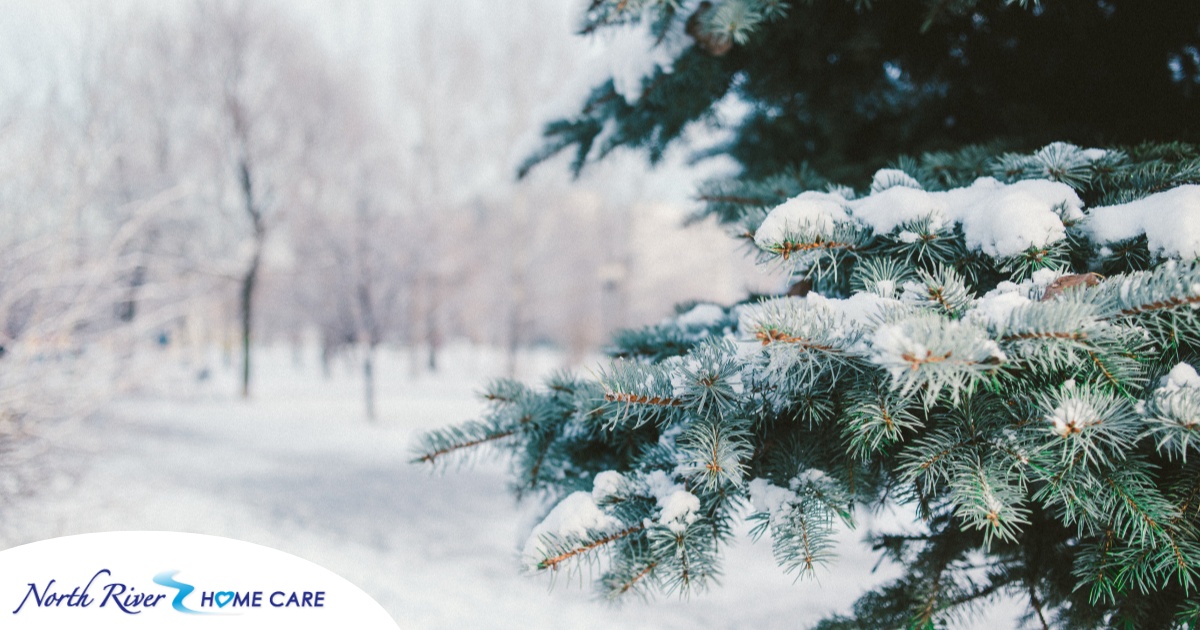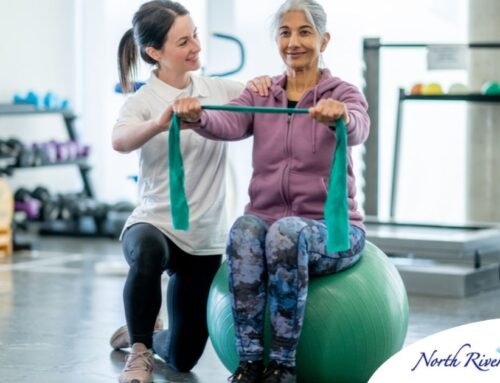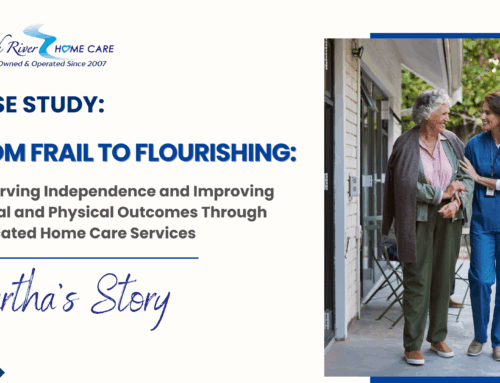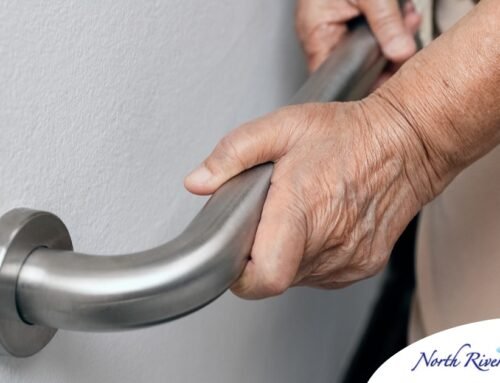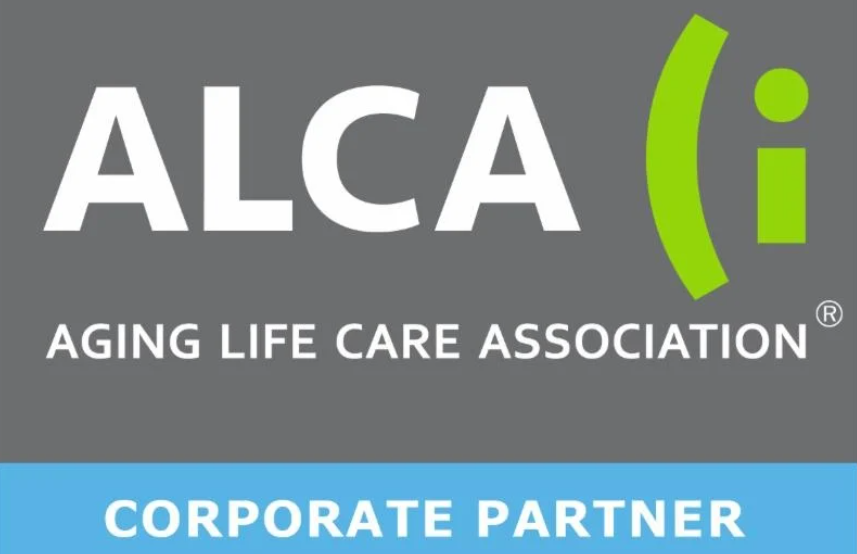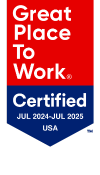While winter in Norwell, MA can be a beautiful and magical time of the year, it also poses unique senior safety challenges for adults 65 and over. As the temperatures drop and the snow accumulates, seniors are at increased risk of falling on ice and snow or experiencing hypothermia. In addition to these physical risks, winter can detrimentally impact a senior’s mental health and well-being.
As a result, seniors and their loved ones must be aware of these challenges and take appropriate steps to prevent accidents and injuries during the winter months. Read on to explore essential winter safety tips every senior and family caregiver should know.
Seniors Face These Winter Safety Challenges
Adults aged 65 and over are at increased risk of experiencing these physical and emotional issues during cold weather months:
- Injurious Falls: One of the primary dangers for seniors is the risk of slipping and falling on icy or snowy surfaces. Falls can lead to severe injuries, such as broken bones or head trauma, and can have long-lasting consequences for seniors’ mobility and independence.
- Hypothermia: Older adults are more susceptible to hypothermia, a dangerous condition that occurs when the body loses heat faster than it can produce it. If not treated promptly, hypothermia can lead to confusion, dizziness, and even death. Seniors should take precautions to stay warm and dress in layers when going outside in cold weather.
- Seasonal Affective Disorder (SAD): Winter can also take a toll on seniors’ mental health, leading to feelings of sadness, fatigue, and depression. Seasonal Affective Disorder (SAD) is a type of depression that occurs at a specific time of year, usually in the winter months.
- Limited Mobility: Cold weather and icy conditions can make it difficult for seniors to get around safely, especially if they have mobility issues or use assistive devices like walkers or canes.
- Isolation: Winter weather can also promote or worsen feelings of isolation and loneliness for seniors, as they may be less likely to socialize or participate in activities outside the home.
Winter Safety Tips for Seniors and Families in Norwell, MA
Thankfully, and with the help of loved ones, seniors can stay safe and comfortable all winter long by taking these steps:
Clear Driveways and Pathways
Walking to the mailbox on icy surfaces or shoveling snow can be hazardous for seniors. To reduce the risk of falls, make sure that your loved one’s walkways and driveway are clear of snow and ice. Older adults should also wear appropriate footwear with good traction and use assistive devices if needed.
Keep the Home Warm
Set the thermostat to a comfortable temperature and ensure the home is well-insulated to prevent drafts and heat loss. Additionally, seniors should dress warmly, even indoors, and use blankets or heating pads to stay warm and cozy.
Stay Active
Encourage seniors to stay active and exercise regularly, even if it’s just a short walk around the house or doing stretching exercises. Physical activity can help improve balance, strength, and overall health, reducing the risk of falls.
Eat a Well-Balanced Diet
Nutrition plays a vital role in winter safety for seniors. Make sure your loved one is eating a variety of nutritious foods, including fruits, vegetables, lean proteins, and whole grains. Warm soups, stews, and hot beverages can also help keep seniors warm and nourished.
Check on Elderly Neighbors
If you have elderly neighbors who live alone or may need assistance, check on them regularly during the winter. Offer to help shovel snow, run errands, or provide companionship and support.
Professional Home Care: Reimagining Senior Safety During Winter
Looking after a senior loved one in winter when you’re tired or live far away can be challenging. When called upon, a professional in-home caregiver from a reputable home care provider can step in and help ensure your loved one’s winter safety in these ways:
Fall Prevention
Professional caregivers can help clients minimize their risk of falling by conducting a home safety assessment and making necessary modifications, such as installing grab bars, non-slip mats, and handrails. Caregivers can also assist with mobility and transfer techniques to help seniors move safely around the home.
Medication Management
Seniors may need help tracking their medications or refilling prescriptions in colder months. Home care providers can help clients organize their medications, set reminders, and ensure they take the right doses at the right times.
Meal Planning and Preparation
Home care providers can help clients plan and prepare healthy meals that meet their dietary needs and preferences. Their caregivers can also assist with grocery shopping, meal planning, and hydration to ensure seniors get the nutrients they need to stay healthy during the winter.
Companionship and Socialization
The “winter blues” can significantly impact a senior’s well-being, especially during cold weather months. In-home caregivers can offer companionship and emotional support, engaging clients in conversation, activities, and social outings to combat feelings of loneliness and depression.
Emergency Preparedness
Home care providers can help seniors prepare for emergencies in a winter storm or power outage by creating a plan, stocking up on supplies, and staying informed about weather alerts. Caregivers can also assist with evacuation procedures or seek help in a medical emergency.
Final Thoughts About Senior Safety in Winter
Winter can be challenging for seniors. Thankfully, with the proper precautions and support, older adults can stay safe and healthy throughout the season. Seniors can maintain their independence and well-being by addressing common winter safety challenges, such as falls on ice and snow, hypothermia, and Seasonal Affective Disorder. Family caregivers are essential in helping older adults stay safe during the winter, whether by clearing pathways, keeping the home warm, or providing emotional support and companionship.
When needed, professional home care also plays a vital role in reinforcing senior safety during winter. Offering a range of services to help seniors live independently and securely at home, from fall prevention and medication management to nutritious meal preparation and emergency preparedness, home care providers can support seniors in staying healthy, active, and connected during the colder months.
As winter approaches, it’s essential for seniors and families to proactively address winter safety concerns and take appropriate steps to prevent accidents and injuries. Following these winter safety tips is vital for ensuring aging-in-place seniors can enjoy the season with renewed peace of mind and confidence, restoring their loved ones’ peace of mind.
A Home Care Agency that Prioritizes Senior Safety Year-Round
Helping an aging loved one prioritize winter safety can be challenging when you’re busy or live far away. When you need assistance, contact North River Home Care in Norwell, MA. As a fully licensed and accredited home care provider, our compassionate caregivers can step in and serve as an extended family in the home, ensuring your loved one’s physical safety and emotional well-being. We offer a comprehensive lineup of in-home services tailored to your loved one’s unique needs, including year-round home safety assistance, 24-Hour Home Care, Companionship and Personal Care, Alzheimer’s or Dementia Home Care Services, Rehabilitation Home Care, Respite Care, and Veteran Home Care.
While assisting clients in Norwell, MA, Sandwich, MA, Southshore, Cape Cod, and Metrowest MA, our agency’s focus is maintaining their quality of life, dignity, self-esteem, and independence. For your added convenience, all our home care services can be individually personalized into an affordable package when and where you need them! Please visit North River Home Care now to learn more about our senior safety protocols or schedule a free consultation for someone in our service area.




